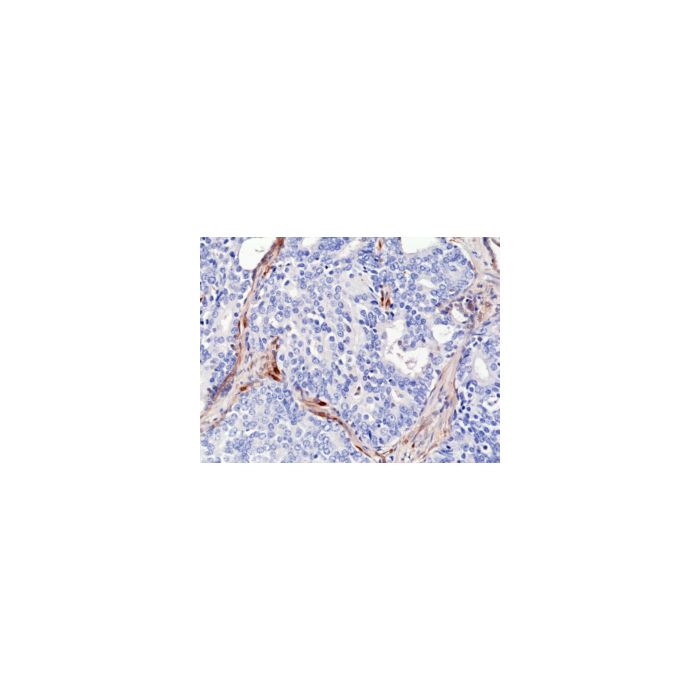Cookie Policy: This site uses cookies to improve your experience. You can find out more about our use of cookies in our Privacy Policy. By continuing to browse this site you agree to our use of cookies.
RevMab
anti-PTEN (human), Rabbit Monoclonal (RM265)

| Product Details | |
|---|---|
| Synonyms | Phosphatidylinositol 3,4,5-trisphosphate 3-phosphatase and Dual-specificity Protein Phosphatase; Mutated in Multiple Advanced Cancers 1; Phosphatase and Tensin Homolog |
| Product Type | Recombinant Antibody |
| Properties | |
| Clone | RM265 |
| Isotype | Rabbit IgG |
| Source/Host | Rabbit |
| Immunogen/Antigen | A peptide corresponding to the C-terminus of human PTEN. |
| Application |
Immunohistochemistry (IHC): 1:1000-1:2000 dilution |
| Crossreactivity | Human |
| Specificity |
This antibody reacts to human Phosphatidylinositol 3,4,5-trisphosphate 3-phosphatase and has dual-specificity to protein phosphatase PTEN. This antibody may also react to mouse PTEN, as predicted by immunogen homology. |
| Purity | Protein A purified. |
| Purity Detail | Protein A affinity purified from an animal origin-free culture supernatant. |
| Concentration | N/A |
| Formulation | Liquid. 50% Glycerol/PBS with 1% BSA and 0.09% sodium azide. |
| Isotype Negative Control | |
| Other Product Data |
Click here for Original Manufacturer Product Datasheet |
| Accession Number | P60484 |
| Declaration | Manufactured by RevMab Biosciences. |
| Shipping and Handling | |
| Shipping | BLUE ICE |
| Long Term Storage | -20°C |
| Handling Advice | Avoid freeze/thaw cycles. |
| Use/Stability | Stable for at least 1 year after receipt when stored at -20°C. |
| Documents | |
| Product Specification Sheet | |
| Datasheet |
 Download PDF Download PDF |
PTEN (phosphatase and tensin homologue deleted on chromosome ten) is a tumor suppressor implicated in a wide variety of human cancers. PTEN encodes a 403 amino acid polypeptide and contains a tensin like domain as well as a catalytic domain similar to that of the dual specificity protein tyrosine phosphatases. PTEN preferentially dephosphorylates phosphoinositide substrates. PTEN negatively regulates intracellular levels of phosphatidylinositol-3, 4, 5-trisphosphate in cells and functions as a tumor suppressor by negatively regulating PI3K/Akt signaling pathway. PTEN possesses a carboxy-terminal, noncatalytic regulatory domain with three phosphorylation sites (Ser380, Thr382, and Thr383) that regulate PTEN stability and may affect its biological activity. PTEN regulates p53 protein levels and activity and is involved in G protein-coupled signaling during chemotaxis. PTEN plays a role as a key modulator in neurogenesis, including correct neuron positioning, dendritic development and synapse formation and it may be also a negative regulator of insulin signaling and glucose metabolism in adipose tissue. The nuclear monoubiquitinated form possesses greater apoptotic potential, whereas the cytoplasmic nonubiquitinated form of PTEN induces less tumor suppressive ability.






